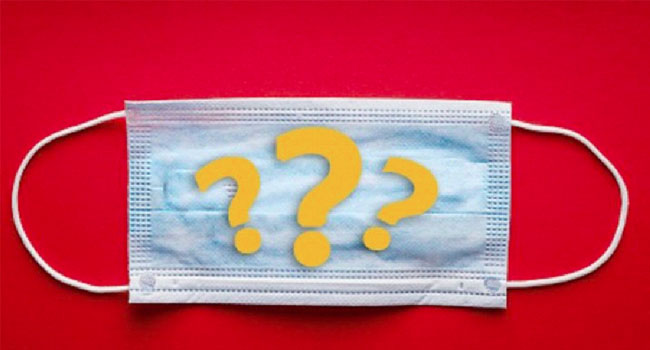The people of Kerala deserve to know the layers of facts about the ‘Kerala Model’, which appear to have shrouded in thick veil
-Dr Akshay K Singh

Much touted story of the so-called “model covid state” of “flattening the curve” jettisoned with recent spike in the positive case of coronavirus infection in Kerala, exposing the political skullduggery and presumptuousness of being exceptional in dealing with the crisis. Façade of inimitability prompted the communist government of Kerala to dilute the lockdown measures, issuing guidelines on April 17, 2020, however, pulled back soon after the Union Home Minister’s stern but guarded objection. With new 19 cases in a single day on 21 April, the reversing epidemiological graph has glaringly alarmed against the looming danger in the state. A slightest of laxity can force Kerala to pay heavily in terms of human lives. The deadly Covid-19 smacked Kerala on January 30, 2020 as India’s first positive case in a female student who had returned from Wuhan, China. Until now the journey of Keralam society fighting against the pandemic has been commended both nationally and internationally. But esoteric desire of a particular section, wielding homogeneous interest, intending to exploit even the excruciating situation, is well discernible in extensive media reporting often with the painted image of Kerala’s success on the pandemic front.
The Myth of Exceptionalism: A Reality Check
There is a buzz all around: the world must emulate the “model of Kerala” to deal with the Covid pandemic. Moreover, this ballyhoo over Kerala as a “model covid state” evidently appears to be an extension of the once-fervently-sponsored venture of a committed scholarship to project “Kerala model of development”. This has been continued audaciously in the face of necked reality that Kerala is a diabolical case of “lopsided development”. Political dispensations after statehood have used Kerala’s remarkable “human development achievements” as cover for the grim performance of state on many counts. How can Kerala be complemented as “model” with highest rate of unemployment in the country. Kerala Government’s own document (Kerala Economic Review 2019) reveals that with 11.4 per cent, rate of unemployment is twice the national figure. Can an economy be ideal with 36 per cent of SGDP’s dependence on an unstable foundation of remittances (Rs. 90,000 crore) mainly coming from the Gulf oil economies, infamous for being susceptible to recurrent upheavals.
Once defense of Richard Franke and Barbara Chasin for Kerala being “social justice model” seems meaningless with highest rate of inequality in the country (Gini coefficients for both in rural and urban areas are highest in India. For rural Kerala it is 0.37 as compared to Bihar (0.22) and for urban Kerala it is 0.44 as compared to Bihar (0.32). Economic inequality poses challenge to the fairness of political institutions, economic institutions and even the fabric of society. By any stretch of imagination Kerala’s debt-ridden economy, with outstanding liabilities equaling to 30.8 per cent of the gross state domestic product in the current year (2020-21), won’t justify a model of development. Beside, the issues of social disorganization continue plaguing the Keralam society. For instance, Kerala is called India’s suicide capital with 8 out of 52 suicide hotspots. National Crime Records Bureau (NCRB) in 2015 spelt out the horrible rate of cognizable crimes in Kerala which was highest in the country at 723.2 (cases per 1 lakh population). Unfortunately, all these don’t find legitimate place in the so-called Kerala model, “veiled by a shroud of academic opacity.” Having experienced this, one may afraid of kicking-off another political leitmotif “Kerala as a model covid state”. Notwithstanding the truth, the people of Kerala deserve to know the layers of facts which appear to have shrouded in thick veil.
Victim of Own Design or Political Skullduggery?
How Kerala is a model covid state deserves a careful analysis. The popular observations attributing to Kerala’s success are: promptness to deal with problems; past experience of tackling epidemics like Nipah virus disease; and a “formidable” primary health care system. No question on such observation. As of now what is evident, out of 400 reported cases, only four have died so far – just about one percent, “significantly less than the rest of India or in many parts of the world.” Contrarily, at the same time it must be noted that as on 1st May, 2020, there are as many as 16 states/UTs from where there is report of zero death. Kerala is not that fortunate. There are 15 districts in the country where no case has been reported in last 28 days, but this is without a single district from Kerala. Kerala’s almost half districts are in red zone. Moreover, Goa, Manipur, Tripura and Arunachal Pradesh are declared free from calamity; they have never been claimed to be model state. Hardly chorus for their success have been noticed.
By any stretch of imagination Kerala’s debt-ridden economy, with outstanding liabilities equaling to 30.8 per cent of the gross state domestic product in the current year (2020-21), won’t justify a model of development
An announcement of the Government of Kerala of Rs 20,000 crore financial package to revive the state’s economy has opened a new debate. Kerala’s Finance Minister, Thomas Isaac said, this is not either “financial window dressing” or “skullduggery.” In reality, given the past record of the government, the doubt thickens, and it does appear a full blown political skullduggery. Nobody questions the declaratory object of the financial package, but how it will work is yet to be answered by the government. On the question where from the money come? The government proposes to frontload annual borrowing up to Rs 12 thousand crore out of the annual borrowing limit of Rs 27 thousand crore in the current FY. Without working on other critical factors of economy, this attempt may pose daunting challenge. Moreover, in reality, as a former chairman of the state finance commission writes recently, Kerala is heading towards the total collapse of state’s finances, following “the worst economic crisis in its history” with the “projected loss at Rs 70,132 crore for 40 days lockdown”.
Misgovernance Exposed
At the same time, communist government’s devious past records is a matter of great worry. A major media outlet reported in November last year, an enormous amount of the $250 million (Rs 1789 crore) given by the World Bank for post-flood reconstruction had gone “missing from the treasury”. Regrettably the allegation of the fund diversion was admitted later by the Finance Minister Thomas Isaac. In the wake of the 2018 floods, the Chief Minister’s Disaster Relief Fund had collected Rs 4,798 crore. Till date about 40 per cent (Rs 1,700 crores) of the fund couldn’t be disbursed over the last two years for utilization. And, shockingly, as disclosed in media recently, the fund has been misused at large-scale, including “allocations to engage leading lawyers to defend party men named as accused in sensational political murders”. The state Lokayukta admitted a complaint that the state Cabinet had illegally transferred money from the fund to the families of prominent Left Democratic Front (LDF) leaders who had died in recent times.
Furthermore, the financial package of Rs 20,000 crore, in principle intended “to put cash in the hands of the people”, sounds like a sop to woo voters for the 1,200 local body elections scheduled in October this year and the Assembly election due next year. If the communist government had misused the 2018 flood relief fund for its partisan interest how can one be assured this time the same will not be repeated. A stark case of misgovernance can be seen in, what leader of the Opposition in the Assembly, Ramesh Chennithala alleges of, “compromising the privacy of the citizens” by allowing a US-based company, Sprinklr, to collate and manage the personal data of 175,000 people including the Covid-19 patients “without supposedly following the protocol”. Contrary to the propaganda of being humane in dealing with the crisis, a reported case of migrant workers’ (mostly from the north India) agitation in March in Paippad panchayat in Kottayam, getting disturbed by the inhuman condition in which they were ordained to live in the labour camps is a big blow in the face of the Vijayan government. The agitation made police and revenue officials to inspect labour camps across Kerala. “Inspectors found many living in crowded shelters with minimal toilet facility.” These developments render Kerala’s war against coronavirus in a compromised stage.
(The author is a faculty of Law and Governance,
Gautam Buddha University, Greater NOIDA)
Amartya Sen calls ‘Kerala Model’ a ‘rhetoric’
The Communist leaders and self-proclaimed economists profusely quoted Amartya Sen and his book to establish their propaganda of ‘Kerala Model of Development’, which seeks to establish that the achievements of the present state of Kerala are a direct outcome of socio-economic policies of the various Left Governments in the state.
Taking the narrative further, the Leftist journalists had launched massive propaganda through mainstream media, highlighting the myth of Kerala Model under the guise of the book marketing campaign.
Rattled by the Communist propaganda, Amartya Sen and Jean Drèze published a note in the subsequent edition of An Uncertain Glory: India and Its Contradictions’. However, it did not get much public attention and the CPM leaders continue to misquote Amartya Sen, harping on the myth of the Kerala Model.
What Amartya Sen and Jean Drèze said about the ‘rhetoric of Kerala Model’?
“The term ‘Kerala Model’ has often been used in this literature (the literature cited in the text), and more distressingly has occasionally been attributed- entirely erroneously- to our analysis. We have never used this particular ‘rhetoric’. There is much to learn from scrutinizing the experience of Kerala- and of the other high-performing states- ‘but there is little evidence for seeing Kerala as a model to be mechanically emulated’.” (Notes- 3. Indian in Comparative Perspective), An Uncertain Glory: India and Its Contradictions page No: 346.
Rejecting the propaganda of ‘Kerala Model’, Amartya Sen and Jean Drèze explained it in simple terms that there is little evidence for seeing Kerala as a model to be mechanically emulated. However, even now the CPM has no qualms to misquote Amartya Sen and claim the patronage of Kerala Model, sweeping the achievements of Travancore in the fields of education and health under the carpet.
– Organiser Bureau














Comments